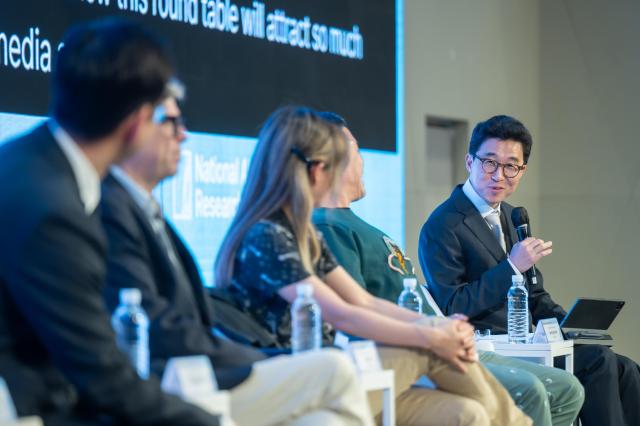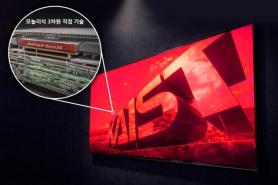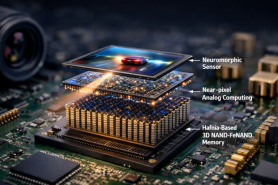
SEOUL, October 27 (AJP) - KAIST said Monday that the National AI Research Lab (NAIRL) and the Global AI Frontier Lab jointly hosted the "Global AI Frontier Symposium 2025" at Seoul Dragon City, drawing more than 500 participants from academia, industry, and government.
The event was organized by the Ministry of Science and ICT and the Institute for Information & Communications Technology Planning and Evaluation (IITP). Vice Prime Minister and Science and ICT Minister Baek Kyung-hoon attended the opening ceremony, along with IITP President Hong Jin-bae and other officials from South Korea and abroad.
Two keynote speakers headlined the morning session: Yann LeCun, Turing Award laureate and professor at New York University, and Choi Ye-jin, professor at Stanford University and senior director at NVIDIA. LeCun spoke on the governance of AI research and the need for international cooperation, while Choi discussed how generative AI could evolve beyond existing scaling laws.
Researchers from South Korea, the United States, Japan, France, and the United Arab Emirates presented their latest work and shared ideas for building stronger international research networks. The National AI Research Lab, led by Director Kim Ki-eung, and the Global AI Frontier Lab, co-directed by LeCun and Cho Kyung-hyun, unveiled key research outcomes from the past year.
In his opening remarks, Minister Baek said that he hopes South Korea will move beyond being a strong technology nation to becoming a global leader in AI innovation. He called on the two labs to continue expanding international cooperation and nurturing a broader research ecosystem.
The symposium featured two sessions. The first, titled "Foundations of Next-Generation AI," was chaired by KAIST Professor Yang Eun-ho and included presentations from Takeuchi Ichiro of RIKEN, Kam Tae-eui of Yonsei University, Park No-seong of KAIST, Lee Jae-ho of POSTECH, and Kartek Alahari of INRIA. The discussions focused on reliability frameworks, scientific foundation models, scaling limitations, and data-driven AI research.
Running in parallel, the "Physical AI for Real-World Autonomy" session was chaired by POSTECH Professor Cho Min-su and explored topics such as self-supervised learning, reinforcement learning fairness, 3D vision models, and embodied agents. Speakers included Jean Ponce of ENS-PSL, Shim Hyun-jung of KAIST, and Ivan Laptev of MBZUAI.
Industry experts from NAVER Cloud and POSCO Holdings joined panel discussions to explore how these research findings could be applied in real-world settings and lead to stronger collaboration between academia and industry.
Kim Ki-eung, director of the National AI Research Lab, said the symposium was an important opportunity to showcase the past year's achievements and strengthen the foundation for international cooperation.
KAIST President Lee Kwang-hyung said the National AI Research Lab serves as a central platform linking South Korea's AI research to the global stage, adding that KAIST will continue connecting academia, industry, and government through AI-driven innovation.
Established in October 2024 with support from the Ministry of Science and ICT and IITP, the National AI Research Lab is South Korea's largest AI research consortium. It brings together 45 professors and about 150 student researchers from KAIST, Korea University, Yonsei University, and POSTECH, in collaboration with 12 Korean companies and 14 overseas institutions.
The Lab also works with the Seoul Metropolitan Government and Seocho District to build a global AI ecosystem. Around 20 foreign researchers stay in South Korea for extended research programs, and the Lab regularly invites global experts to share the latest advances in AI.
It has recently expanded its network by signing an MOU with Japan’s RIKEN and holding talks with AI institutions in Singapore to strengthen cooperation in AI governance and research.
Copyright ⓒ Aju Press All rights reserved.




